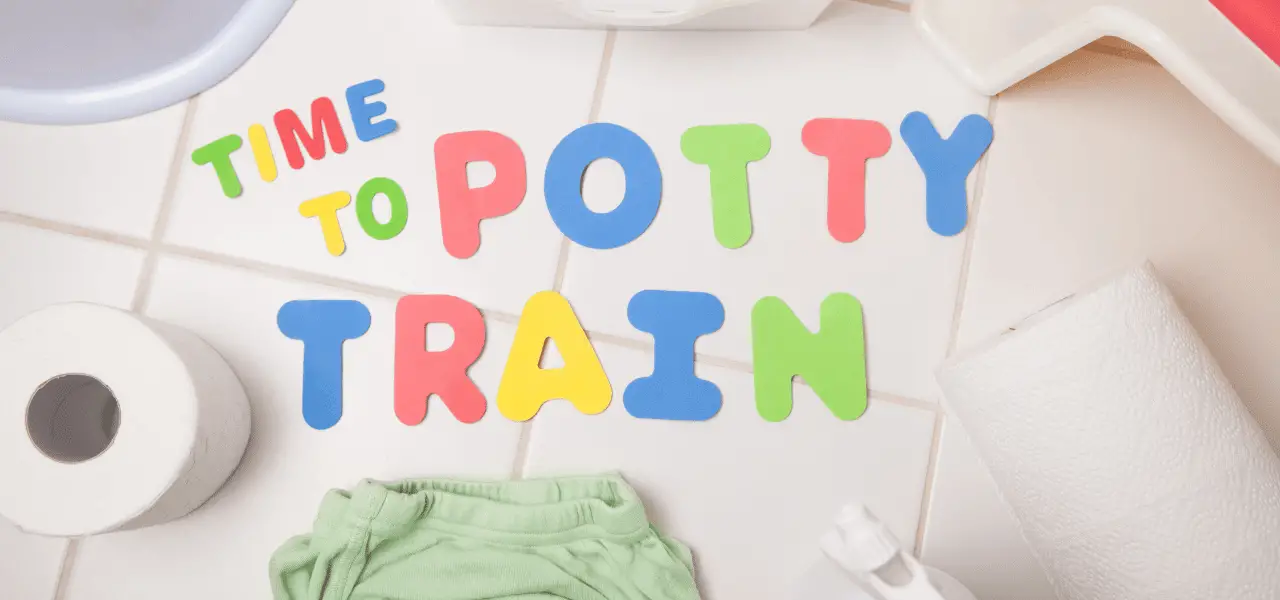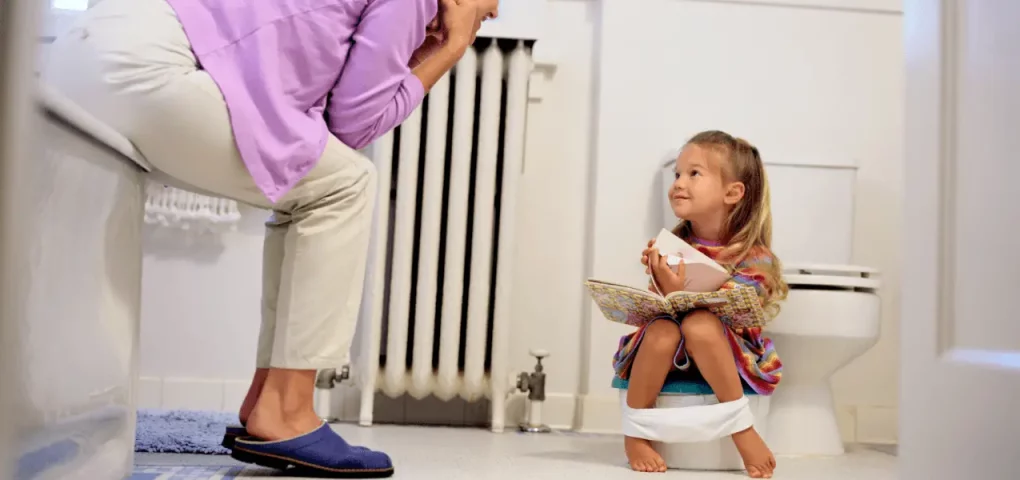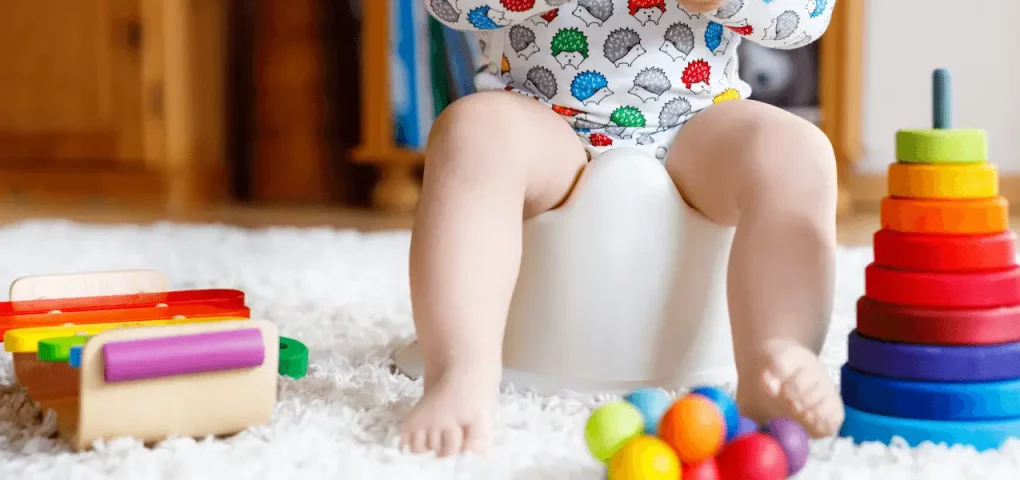
There were a lot of things you’re probably worried about doing right when you first became a parent. And we’re guessing that your list of things includes potty training, also known as toilet training.
As a child, you’ve had your share of accidents. You probably still recall how your parents had to endure several trips to your kindergarten and preschool to explain to your teachers why you wet yourself or pee frequently in the middle of the class instead of going to the toilet.
Many educators used to think that problems or stress experienced at home could cause such behavior. When in fact, it could be the exact opposite. It’s just that accidents do happen.
If you’re a first-time parent, you probably asked your own parents how they potty trained you. What better way to learn potty training than from experience, right?
Some parents think they can also approach potty training the same way they plan their children’s future. They equate potty training with having their babies listen to Mozart inside Mom’s womb or speech training.
Nope. Potty training may be a bit more complicated, as it requires utmost patience. But we assure you that the journey is worth it.
Here are some tips to help you and your kid experience a fun journey toward potty training success.
When should you start potty training?
According to the American Academy of Family Physicians (AAFP), data shows that toilet training begins between 21 and 36 months.
Only 40 to 60 percent of children complete potty training by 36 months. Unfortunately for eager moms and dads, there is no benefit to intensive toilet training before 27 months of age.
Overestimating readiness for potty training can result in prolonged training and unnecessary stress for both the parents and the child.
The mastery of developmental skills required for potty training occurs after 24 months of age, and girls usually complete potty training before boys.
Toilet training is a developmental task that all healthy children complete, and it is safe for a parent to assume that not all their children will undergo it in identical ways.
How will you know a child is ready to use the potty?

There is no hard and fast rule but, according to the AAFP, when a child learns to do the following, they are probably ready for toilet training:
- Copy what you do
- Show an interest in the potty toilet, a potty chair, or wearing underwear for big kids
- Can walk, sit, and follow simple instructions
- Indicate when they are about to have a bowel movement (for example, making a face or doing a “potty dance”)
- Can pull their pants up and down
There are other different “readiness skills” that show a child may be ready and waiting for you to potty train them. One of the earliest is when they can remain free from bowel movements overnight, which often occurs at 22 months for girls and 25 months for boys.
Staying dry through the night usually comes later than staying dry through the day.
The last skill mastered is pulling up the pants or underwear which typically occurs around 29 and a half months for girls and at 33 and a half months for boys.
What do I do when my child is ready?
Many parents find it helpful to buy a potty chair and get their child to be more comfortable sitting on it. Having kids use a much bigger toilet seat may cause anxiety or frighten the child.
It helps to dress the child in training pants or loose clothing that is easy to take off and put back on.
Pay attention to the signs, physical manifestations, or facial expressions a child uses when they need to pee or defecate. Teach the child to communicate this to you so you can accompany them to the toilet.
Encourage the child not to hide or hold in their bladder or bowel movements. Let them know that they can ask you to help them go to the toilet whenever they feel they need to.
Encourage them to drop whatever they’re doing and reassure them that you will too whenever they need you to go to the toilet.
Urge the child to sit still and stay on the toilet until they are finished.
Other useful tips to remember

Be Patient
Like any other learning experience, there will be setbacks. Expecting setbacks will help a lot in building your patience and avoiding losing your temper when these setbacks occur, and they definitely will!
Normalize these body functions
Calling bodily functions “stinky”, “messy” or “yucky” may cause feelings of shame around these natural bodily functions. It also discourages the child from approaching you for help in using the potty or otherwise going to the bathroom on their own.
Avoid making negative comments about poop or pee, as well as criticizing the child. The best approach is to be nurturing and encouraging. Negative comments will only affect your children’s perspective and way of thinking about these normal body functions.
Seeing these functions as a shameful act will only make them more embarrassed about it in the long run.
Make the process relaxing and pleasant and avoid using force.
Use positive reinforcement.
Sometimes accidents will still happen, and there is no need to scold or shame the child every single time they do. Just treat it as nothing more than an accident.
Avoid sending your kids mixed signals and let your child know the difference between positive and negative reinforcement. Establishing proper behavior through positive reinforcement is a great way to teach kids to maintain their habits.
You can show them signs of affection or use encouraging or affirming words to build their confidence. Negative reinforcement doesn’t do well for your little one.
Final Note
Another thing for those who send their children to preschool at a really young age, when some of them still have “accidents” – reassure the child that they should always tell the teacher when they need to use the potty and to ask for a company or help if they need it.
Talk to the teacher if needed to recognize the signs that your child has to go to the toilet, and take the initiative to excuse them from class to go to the bathroom.
Last but not the least, don’t lose hope when you notice your child is taking time to be potty trained. Remember, potty training success doesn’t take place overnight. It takes a lot of patience and determination to get your toddler potty trained.
Well, that is almost everything you need to know, be observant and show lots and lots of love, which works pretty much everywhere else.
We hope that you find the above potty training tips helpful for you and your toddler.


Leave a Reply